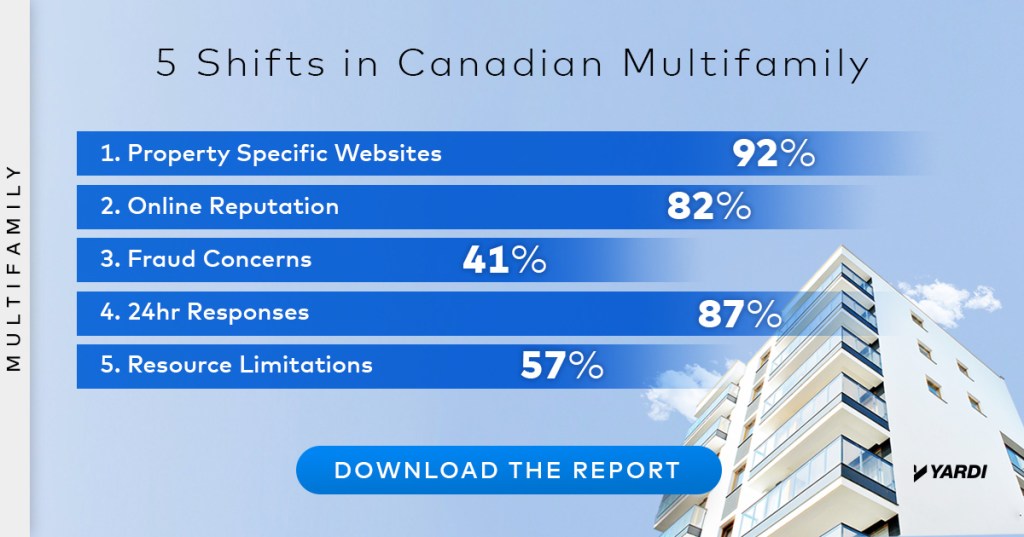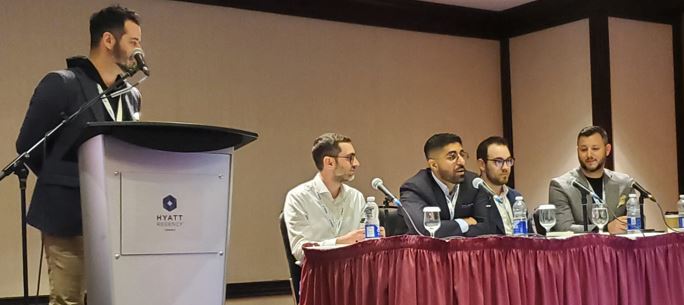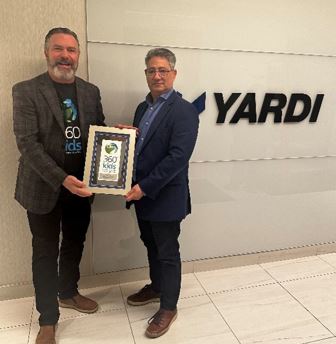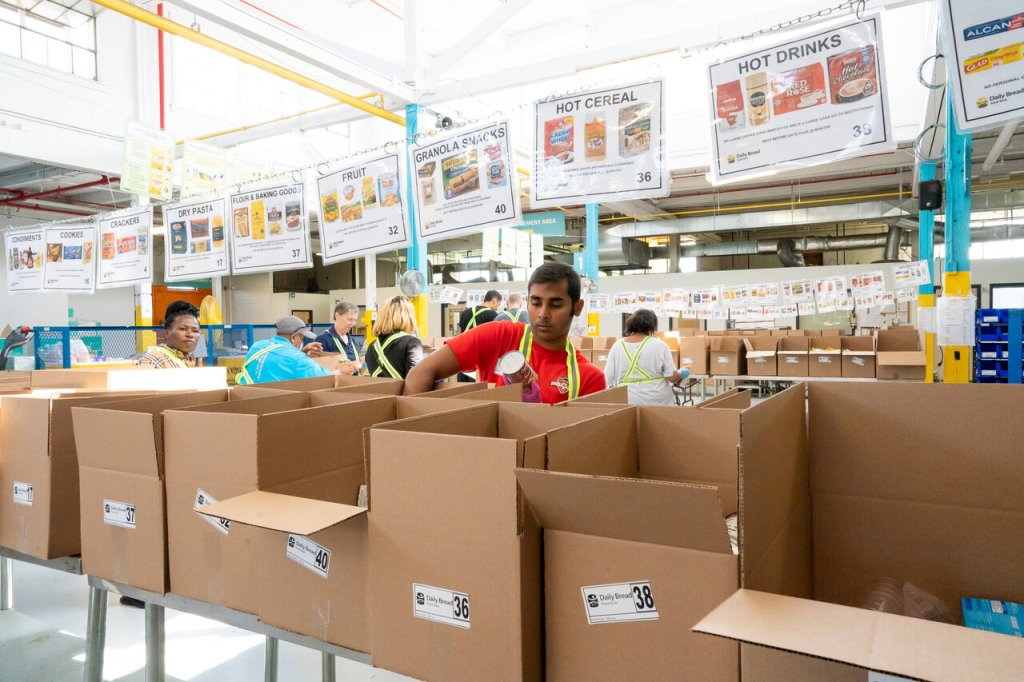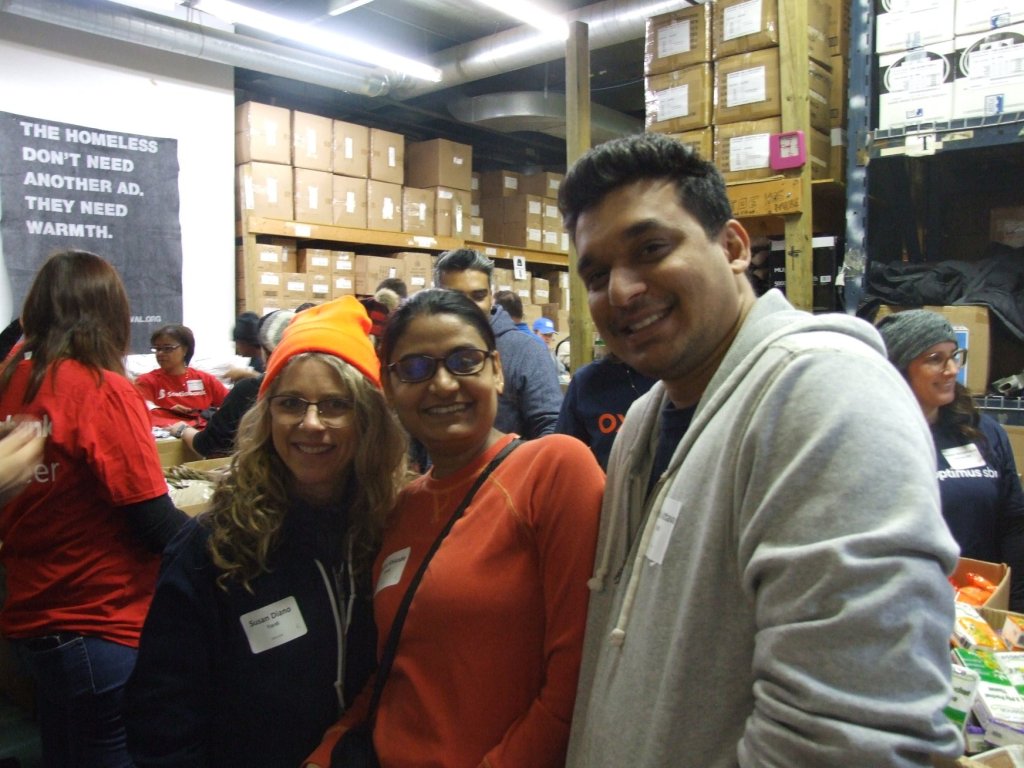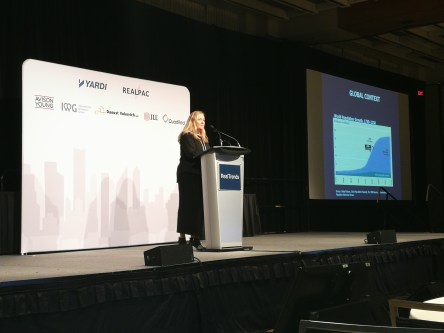In the 2023-24 school year, the Yardi Foundation launched a transformative initiative aimed at empowering first-generation college students across North America. Partnering with 20 colleges and universities, Yardi committed over $3 million in scholarships and student support, making higher education more accessible for those who need it most. As the program continues to expand, it will soon include partnerships with 29 schools by the 2025-26 school year, including new initiatives at institutions like the University of Saskatchewan. USask: Investing in potential At the University of Saskatchewan (USask), the Yardi Scholars Program is set to make a significant impact. The program will support two recipients per year for four consecutive years, with the first scholars starting in the fall of 2025. By fall 2028, a total of eight students will be enrolled. Each scholar receives $10,000 annually, with up to four years of funding available. These scholarships target first-generation students from low-income families who are interested in business and computer science majors. “On behalf of students, faculty and staff at the Edwards School of Business, we extend our heartfelt gratitude to the Yardi Scholars program for establishing a transformative bursary that will support first-generation students,” says Steph Bodnar, development office at University of Saskatchewan, Edwards School of Business. “This bursary allows students with financial barriers to attend university and pursue their academic dreams. The Yardi Scholars program will have a lasting impact on these students’ journey through higher education.” TMU: Expanding horizons Similarly, at Toronto Metropolitan University (TMU), the Yardi Scholars Program began in 2023, offering the same robust support to students. Additionally, Yardi Canada has committed to a three-year support program for two PhD students, further broadening the scope of their philanthropy in Canada. “We are immensely grateful to Peter Altobelli and Yardi for their support to our students,” says Dean Cynthia Holmes. “Ted Rogers School is considered to have one of the highest percentages of first-generation students in Canada, and Yardi Canada’s gift will improve access to quality post-secondary education and help us support students’ success.” Building a brighter future The Yardi Scholars Program is more than just financial aid. It’s about building lasting connections, fostering mentorship and creating opportunities for internships. By providing financial support, Yardi ensures that students can focus on their studies and achieve their academic goals. Yardi senior management actively engages with the scholars, offering guidance and support throughout their educational journey. This hands-on approach not only benefits the students but also strengthens Yardi’s commitment to community involvement and social responsibility. Supporting a generation to come Through its substantial investment in education, the Yardi Foundation is paving the way for future leaders. By supporting first-generation students, Yardi is not only changing individual lives but also contributing to the broader goal of making higher education accessible to all. For more information on the Yardi Scholars Program and other philanthropic initiatives, please visit...
Canadian rental market analysis
Preferences vs. Reality
The Canadian multifamily rental market is undergoing a revolution. To make informed decisions, staying updated on the latest trends and preferences is crucial. Unfortunately, most of our current industry data is outdated and limited, which can hinder effective planning and management for housing providers. This is why new, comprehensive data like the 2023/2024 Canadian Multi-Residential Marketing & Leasing Snap Shot Report, conducted by simplydbs, is an invaluable resource. This report encompasses data from two surveys, featuring responses from 20,000 tenants and housing providers representing 400,000 units across Canada. This report reveals significant disconnects between what renters want and what housing providers are offering. Bridging the online gap between renters and providers One of the most notable findings from the report is the gap between how renters and housing providers view online property listings. While the industry ranks internet listing services (ILS) as the top choice for marketing, prospective tenants overwhelmingly prefer property-specific websites (PSW). According to the report, 92 percent of tenants said that a PSW is essential or nice to have, making it their number one preferred online touchpoint. Up to 76 percent of tenants of tenants stated that ILS sites are still important for them during their rental process. Another critical area is response times. The report found that 87 percent of renters are comfortable with a response time of up to 24 hours for prospect inquiries. This timely communication influences their decision to select a unit or property and their desire to stay there. To effectively address this disparity, employing a 24/7 omni-channel chatbot on a website can significantly free up onsite staff, allowing them to focus on higher value tasks such as assisting with in-person tours and applications. Growing fraud concerns Fraudulent rental applications are a growing concern across Canada. Applicants providing false information, like fake references or altered income documents, contribute to this issue. The report reveals the most alarming consequence: bad debt from unpaid rent due to fraudulent applications. The rate itself is rising, with 41 percent of housing providers reporting a one to ten percent increase and 14 percent indicating an 11-30 percent lift. This emphasizes the need for robust identity verification processes to mitigate fraud risks before applications are even considered. Embracing digital solutions The digital transformation of the rental industry is well underway, with residents increasingly expecting digital applications and services. The report shows that 88 percent of tenants use their building app to create and track maintenance requests, and 72 percent want an app to receive package delivery notifications. Once these apps are available, residents actively use them, underscoring the value of integrating digital solutions into rental communities. Adopting mobile technology also benefits your staff, expedites rental turns, and elevates rental revenue. Understanding the disparity between renters and providers In an industry that relies heavily on accurate and timely information, having access to up-to-date data is critical for mitigating risk and ensuring long-term success. This is where simplydbs comes in. simplydbs specializes in collecting and analyzing real estate data to provide actionable insights that drive better decision-making for housing providers. Their expertise ensures that real estate professionals have access to the latest trends and preferences, enabling them to adapt to current market demands and enhance resident and employee satisfaction. Narrowing the gap The 2023/2024 Canadian Multi-Residential Marketing & Leasing Report exposes the disconnects between renter expectations and experiences. By addressing these gaps, housing providers can stand out from the competition and attract, convert and retain quality tenants, ultimately enhancing resident satisfaction and improving overall operational efficiency. For a deeper dive into these findings, download the snapshot report. When searching for solutions, consider a tech partner with a long-standing presence in the market. Solutions that streamline creating property-specific websites, enhance online communication, prevent fraud, offer tenant apps and manage reputations can be incredibly beneficial. These tools help landlords provide better services, improve tenant retention and ensure smooth operations. Let’s bridge...
Commercial Briefing Montréal
First of Many in Québec
Yardi Canada recently hosted its inaugural Executive Commercial Briefing at the W Montréal Hotel, setting the stage for an evening of insightful discussions and networking. This event left attendees inspired and eager for more conversations with industry experts. Keep reading to learn what you can expect at our future executive briefing. A platform for industry insights and collaboration The Executive Briefing series is an invitation-only event that delves deep into property and program management topics. It provides industry leaders and our executives with the opportunity to discuss the latest challenges and technology solutions shaping the real estate and housing markets. These briefings offer a platform for sharing insights, best practices and innovative strategies directly from top experts and decision-makers in the field. Through exclusive networking opportunities, interactive sessions and presentations from leading analysts, participants can forget important connections and gain valuable knowledge. With the rapid evolution of the real estate market and its supporting technology, these briefings are essential for staying ahead of the curve. Key highlights from the briefiing Jason Chacko, senior account executive of Yardi, shared compelling insights into the Yardi Investment Management Suite. He highlighted the efficiency brought by automation, stating, “The example I like to quote is with on of our major clients. On a quarterly close, they were taking 21 days to calculate their waterfalls. They reduced that to a half-day process with Yardi.” By integrating accounting, performance measurement and reporting into one platform, real estate businesses can streamline investment management. This tool provides real-time insights, boosts efficiency and supports data-driven decisions, helping clients like Timber Creek reduce manual work and improve accuracy in financial operations. The client panel also provided valuable perspectives on digital transformation. Olivier Rocheleau, corporate controller of Groupe Petra, emphasized the necessity of a fully integrated solution, saying, “We were looking for a best-in-class solution and a strong partner to establish ourselves with a solid foundation. Once we identified the modules we needed, Yardi’s implementation team guided us through the process seamlessly.” Groupe Petra is a leading real estate investment and management firm known for its extensive portfolio of commercial properties across Québec. They focus on acquiring, developing and managing high-quality real estate assets, ensuring sustainable growth and value creation. By partnering with Yardi, Groupe Petra aims to enhance their operational efficiency and maintain their reputation for excellence in the real estate market. Michael Sutherland, vice president of Canderel, echoed this sentiment, reflecting on Yardi’s impact on their operations. “We saw Yardi facilitate our strategic direction to streamline our service lines. The savings were compelling when we eliminated ancillary software and replaced it with a single Yardi stack. It was a no-brainer for us.” Canderel is a prominent real estate investment, development and management company with a diverse portfolio spanning office, retail, industrial and residential properties across Canada. Known for their innovative approach and commitment to excellence, focusing on creating value through strategic acquisitions, developments and property management. By adopting our solutions, Canderel aims to streamline their operations, enhance efficiency and support their long-term growth objectives. Exploring the future of AI in real estate David Franklin, industry principal at Yardi, captivated the audience with a discussion on our advancements in artificial intelligence, particularly in lease abstraction. “This technology is exciting. We are going after the ability to abstract leases, cut time on accounts payable and give [clients] a built-in assistant using technology.” Virtuoso represents a significant leap forward in real estate technology. Virtuoso includes advanced features designed to enhance efficiency and accuracy, such as chatbots for improved customer interactions, smart AP for automating accounts payable processes, smart Lease for lease abstraction and an AI assistant for various operational tasks. By integrating these tools, Virtuoso provides seamless automation and intelligent assistance, helping Yardi clients streamline workflows, reduce manual errors and make more informed decisions. Looking ahead Yardi is dedicated to supporting and enhancing the real estate market in Québec. During the...
CFAA 2024 Recap
The Future of Multifamily Housing
The Canadian Federation of Apartment Associations (CFAA) hosted its annual conference in May located in Toronto. This year’s theme, “Building Communities Together,” highlighted the urgent need for collaboration and innovation in the multifamily housing sector. As the industry grapples with longstanding status quo and historically low vacancy rates, stronger partnerships are essential to address Canada’s housing challenges. This event provided a crucial platform for fostering discussions on these pressing issues and exploring prospects for the multifamily housing industry. As a strategic partner and sponsor, Yardi played a pivotal role in the event, contributing to multiple sessions and sharing valuable expertise on various aspects of property management and technology integration. Day 1: Innovations in urban living & industry insights The conference kicked off with a series of building tours, including notable properties managed by Tricon Residential, Minto Apartments and Stackt Market. These tours highlighted new practices in real estate management and provided a practical understanding of how modern technology enhances building operations and resident satisfaction. One standout visit was to Stackt Market, a vibrant community space designed entirely using shipping containers. Stackt Market exemplifies how innovative design can create dynamic community spaces, fostering a sense of community while maximizing the use of urban space. Yardi’s own Parisa Vafaei, director of sales, led a session that delved into the findings of the latest Yardi Multifamily Report, highlighting the necessity for innovative ideas and new partnerships as more units are expected to come into the market to address Toronto’s low vacancy rates. “The vacancy rate in Toronto for Q1 2024 is 2.5 percent, indicating a tight rental market,” Vafaei noted. The report also revealed that Toronto has one of the lowest annual turnover percentages among Canadian census metropolitan areas (CMAs) at 11.6 percent and a lease-over-lease rent growth for new leases of 15.5 percent. These metrics show the critical need for strategic planning and collaboration to manage demand, improve housing availability and maintain affordability in the multifamily housing sector. Day 2: Thought leadership and technological innovations The second day featured key industry leaders, including the mayor of Toronto. Peter Altobelli, vice president of Yardi Canada, led a session on “Leading the Way: The Next Generation,” focusing on workforce management. This session reviewed aligning company values with new talent, fostering mentorship and offering structured career development. The panel discussion highlighted new expectations of the emerging workforce. “Today’s talent is entrepreneurial and ambitious,” one panelist noted. “They interview employers as much as we interview them. While they have technical skills, we seek soft skills. They want autonomy, decision-making roles and alignment with company values.” The discussion stressed the importance of providing broader perspectives, growth potential and dedicated time for succession and leadership planning. Innovative strategies to attract new Canadians were also highlighted, with Fritzrovia’s rotational program standing out for its unique approach. This program helps retain talent by moving individuals through various roles and departments over a set period of time. Emphasizing resident experience and partnering with firms that share ESG commitments were noted as crucial. “Transparency about these commitments is key to attracting talent,” added Courtney Chisholm, project manager at Fitzrovia. Structured onboarding and new technology were also highlighted as critical for maximizing talent contributions. Evolving property management One of the most anticipated sessions was “The Crystal Ball of AI: Leveraging Data & AI for Predictive Insights in Property Management,” moderated by Meherzad Bakht, senior sales manager for Yardi. This panel discussed the transformative impact of artificial intelligence (AI) and data analytics in the multifamily housing sector. Killam Apartment REIT covered the benefits of generative AI technologies, such as chatbots and automated crm systems, to streamline interactions with prospects and residents, enhancing efficiency and improving response times. QuadReal Property Group shared their use of biometrics to authenticate applicant identities before a tour as a new first step for fraud prevention. simplydbs’ survey of 20,000 Canadians revealed renters want their next unit to be...
Supporting 360°kids
Helping York Region youth
At Yardi Canada Ltd., our commitment to giving back to the community is a core value that drives our actions and decisions. Since 2019, we have been proud supporters of 360°kids, a nonprofit organization dedicated to helping youth in York Region who are experiencing crises in their lives. About 360°kids 360°kids is a crucial lifeline for young people who are experiencing homelessness, crisis or other significant challenges. The organization provides a range of services designed to meet the immediate needs of youth while also supporting their ongoing development and independence. Through programs such as emergency and transitional housing, counseling, outreach and employment training, 360°kids helps vulnerable youth stabilize their lives, enhance their support networks and build self-sufficiency. The importance of 360°kids work cannot be overstated. By addressing the immediate needs of young people in crisis, they provide a foundation for these individuals to rebuild their lives. This support is essential in preventing the long-term negative impacts of homelessness and instability, fostering a healthier, more resilient community. Our Ongoing Commitment Yardi Canada Ltd. has made significant contributions to 360°kids, assisting in the continuation of their vital programs and services. With the support of caring corporations like Yardi, 360°kids can offer young adults the assistance they need to build a more stable and self-sufficient future. “Yardi is honoured to be able to give back, and we are proud to support 360°kids, helping to make a positive difference in the lives of vulnerable youth in our community. By providing resources and support, we can empower these young individuals to overcome their challenges and build a brighter, more successful future,” said Peter Altobelli, vice president of Yardi Canada. Making a Real Impact The Yardi Toronto office of is home to 400 employees, with a dedicated committee actively participating...
Daily Bread Food Bank
Feeding Toronto
Daily Bread Food Bank, a nonprofit suported by Yardi Canada, was founded in 1983 in Etobicoke, Ontario. Unlike other food banks, Daily Bread is a member organization and delivers food to 207 meal programs at 132 agencies across Toronto, Etobicoke and Scarborough. One in ten people in Toronto rely on food banks, twice as much as in 2022. Daily Bread distributed nearly 28 million pounds of food in 2022-2023, a 50% increase from the previous year. Clients have doubled over the years since the pandemic, and in December 2023, Daily Bread had over 284,000 clients, surpassing previous records. “Before COVID, we spent $1.5 million yearly on purchased food. Now, we are spending that each month. This past year, we spent $22 million on food, 14 times more than pre-COVID,” said Carol Eby, senior manager for corporate partnerships. Daily Bread hopes the Canada Disability Benefit Law will be approved in the federal government’s March budget. Since many of Daily Bread’s clients rely on the Ontario Disability Support Program (ODSP), this will help them out of deep poverty and be less reliant on food banks over time. Daily Bread ensures they have enough food to provide for those in need. “Our food budget is presently $22 million, and we anticipate this will increase this year to $29 million based on economic factors remaining status quo and the impact these have on an increase in food bank clients,” Eby shares. Funding from Yardi helps Daily Bread purchase food needed to manage the consistent increase in food bank clients it is experiencing. It also helps with research and advocacy efforts to provide foundational research from clients as to why they need to use a food bank. For food bank clients to decrease, Daily Bread strives for systemic change. “This important research is used to inform and educate the various levels of government on policies that need to be created to manage the various economic issues that are impacting the citizens of Toronto,” explained Eby. As poverty rates soar and the hunger crisis worsens in Toronto, Daily Bread recognizes donors like Yardi Canada, “We are so appreciative of the very generous support from Yardi Canada. We do not receive any government funding; we rely solely on corporate donations and individual giving,” expressed Eby. Elena’s Story Many clients of Daily Bread have had compounding medical issues, leaving them unable to work. Elena, a Daily Bread Food Bank client, was in this challenging situation. Health complications forced her to shut down her sales agency, and today, Elena survives on the limited income she receives from the ODSP and support from her local food bank. She is thankful for the food bank’s having fruits, vegetables, and proteins like meats and lentils so she can keep a balanced diet to help aid her health issues. “I see more and more people using the food bank every time I go,” says Elena. “The volunteers and staff are working hard to keep up. I know it is tiring, but I want to remind everyone what a difference they are making in people’s lives, people who are struggling to have food in their cupboards.” At Daily Bread, they are committed to supporting Elena and thousands just like her today who are facing extreme challenges to meet their essential needs. Volunteer Opportunities The Daily Bread Food Bank offers shifts on Thursday and Friday mornings from 8:30 am to 11:30 am and afternoons from 12:30 pm to 3:30 pm. A maximum of 20 Yardi team members can join them for the morning or afternoon food sorting. Please get in touch with Carol Eby at [email protected] to organize volunteer shifts. Find future non-profit profiles...
Eva’s Initiatives
Ending Youth Homelessness
Nearly 10,000 youth in Toronto struggle with housing instability each year. On any given night, about 2,000 of them call the streets home. Eva’s Initiatives for Homeless Youth strives to prevent homelessness while facilitating a brighter future for homeless young people. Andrea Gunraj serves as the Senior Manager, Marketing and Communications at Eva’s. She bears testimony to the dire situations that drive people out of their homes. Many misunderstand the catalysts for homelessness. “They assume young people are not following the rules or they’re getting into things that they shouldn’t. It can be a blame approach,” reflects Gunraj. She continues, “I think one of the things that people often misunderstand is why young people become homeless in the first place. In Toronto, there is a high number of people who experience issues at home like abuse. With 70 percent of young people, they identify that as one of the reasons for leaving home. And it’s not easy to leave by any means when you don’t have money or support. Often, there are really dire situations that push people to leave.” There is also a misconception that mainly youth from economically disadvantaged families are at high risk of homelessness. About 50 percent of homeless young people come from middle- and upper-income families. Eva’s provides services for young people and their families to keep the household healthy and intact if possible. Two shelters and a transitional housing facility, plus education and job training services, are available to help them make the transition to independence. Yardi supports Eva’s Satellite, Eva’s Phoenix, and Eva’s Place. The three facilities are home to 123 homeless youth aged 16-24 every night. Residents receive basic necessities such as food, clothing, and hygiene items. Staff members assess the young persons’ mental, physical, and...
GRESB Holds Key
To ESG Improvement
The buildings sector accounts for about a quarter of Canada’s total final energy consumption and approximately 15% of greenhouse gas (GHG) emissions when emissions are associated with electricity used in buildings, according to Efficiency Canada. Canada’s buildings, which require both heating and cooling, are particularly reliant on energy use, which in most cases produces carbon. The government has committed to cutting the country’s greenhouse gas emissions by 40-45% below 2005 levels by 2030 and is set to achieve net-zero emissions by 2050. Attaining these goals will require all sectors, including property management, to gain a clear understanding of their energy performance. That makes ESG a megatrend “that will continue to have a transformative impact on the industry,” says Richard Joy, executive director of Urban Land Institute Toronto. Gaining a deeper understanding of energy performance and how to improve it in 2022 will require real estate professionals to perform more energy benchmarking and better tracking of their buildings and portfolios’ energy performance. Leveraging accurate energy consumption data helps property owners confidently compare their performance against their own standards and others in their sector. Accessing this information in real time drives informed decision-making about productive building improvements and investments. “Technology and data analytics can assist with analyzing opportunities of growth and making better-informed investments,” notes Frank Magliocco, national real estate leader for PwC Canada. GRESB drives ESG insight A key resource for detailed energy performance information is the Global Real Estate Sustainability Benchmark (GRESB), an organization that benchmarks real estate assets’ environmental, social and governance (ESG) performance and provides standardized and validated ESG data to the capital markets. GRESB evaluations help real estate stakeholders improve their sustainability performance and satisfy growing investor demand for timely, reliable and accurate ESG information. The 2021 global GRESB evaluation measured...
Tech for Security + Efficiency
Executive Briefing, Canada
Do you want to streamline payables and purchasing, expedite approvals and eliminate paper? It’s not too good to be true. You can with a robust cloud-based procurement solution. Your industry peers are already experiencing success, and it’s simpler than you think. The recent Yardi Executive Briefing offered multifamily property specialists an inside look at the power of modern procurement software. Peter Altobelli, VP and general manager, Yardi Canada facilitated the session, “The New Age of Canadian Residential Real Estate” with clients Christine Williams, VP, national operations and administration at QuadReal Property Group and Brian Turpin, CIO of Greenwin Corp. Early tech adaption resulted in efficiency and agility Both QuadReal and Greenwin embraced technology long before the pandemic began. The organizations actively sought solutions that promoted efficiency, accuracy and sustainable growth. Williams laughed, “QuadReal is still fairly young but from the beginning, we embraced the digital workflow and got rid of our paper trail.” Turpin added, “Proptech is exploding with different technology. Everything is paperless and more efficient. I joke that even the light switches are under my domain because everything is connected to the internet.” Technology isn’t decorative. For both organizations, technology is a core part of the business that enables greater efficiency, transparency and collaboration. By embracing technology, their teams were better prepared to shift to remote work environments and online services. When many offices closed or reduced operating hours during the pandemic, QuadReal seamlessly achieved business continuity with Yardi Procure to Pay, automated vendor management, automated procurement (including a comprehensive marketplace), electronic invoice processing and outsourced vendor payments. “Yardi Procure to Pay offers us a better way to keep track of invoices and keep us on time with our payments to vendors,” said Williams. “The Yardi Payscan, community-initiated purchase orders and approval workflows were matched to internal authority levels. Centralized invoice processing teams would receive the digital invoices and match them to the purchase orders with a few added tolerances. They would then be en route for payment approval and vendors could be quickly paid with Yardi Bill Pay.” Greenwin, which had already adopted Procure to Pay, continued operations as usual. The automation of the entire procurement life cycle was driven by benefits seen in streamlining resident transactions. “The key piece is document management,” explained Turpin. “In tech, a lot of things we do don’t have a visible impact. But when you’re tearing down unused filing cabinets and renovating rooms to add desks, it’s a visible way to see how tech benefits the company.” Buy-in and adoption made easier Adoption is around 95% at Greenwin. For buy-in, Turpin and his team positioned technology as an empowerment for success. “Yardi created a custom onboarding video for us that we send to vendors,” he said. “They see that they don’t have to mail anything. We empower our suppliers to upload their invoices to VendorCafe, to see statements and automate their process. It has a trickle-down effect.” Yardi Marketplace, an online procurement platform, was perhaps one of the easiest buy-ins for Greenwin. The intuitive platform already fit into users’ daily lifestyle. “It’s a great example of the consumer world integrating with the enterprise world. Most people shop online and we can leverage that. From a user perspective, there was great adoption because it streamlines, prepopulates fields and automates processes,” explains Turpin. Williams agreed, “Our team shops on Marketplace. The PO goes through its workflow. It’s approved, all the coding is in there and the payment is out of the door. Our team can even create a list of favourites, so their most popular products are easy to find. They’ve learnt to love the simplicity.” Improved security through portal-based transactions Secure online portals help to decrease risk to clients and vendors. In the past, vendors sent invoices via email or the postal service. This resulted in a greater risk of phishing scams, lost postal mail and delays, as well as cheque...
Tech Investment
Strategies for Social Housing
Millions of Canadians count on the social housing sector to provide them with accessible housing resources and services. Organizations like the Canadian Housing and Renewal Association (CHRA) and Ontario Non-Profit Housing Association (ONPHA) work closely with local providers to advocate for and assist this underserved population, despite working within tight budgets. This sector’s resiliency has been the driver for great innovation over the last 12 months. In many cases this involved collaborating with technology providers to map out how the future of social housing can be simplified for staff, residents and suppliers. Deciding when and how to digitize social housing workflows depends on answers to question such as: is there an immediate factor that can be resolved to improve how your office functions? Are your applicants, residents and staff increasingly requesting new digital access to processes you’ve normally conducted in-person, on the phone or via mail? Can your team quickly access the data it needs to make informed decisions, while staying compliant? Once you make the decision to invest, benefits will follow. Benefit #1: Empower Staff through Streamlined Processes Technology built for social housing can reduce “touch points” that live within your day-to-day processes. Think of a touch point as a desk or computer screen that a file has to be delivered to in order for it to move one step closer to completion. The goal of reducing those touch points is not to lessen oversight, but rather to automate access to information so that those stops or “touch points” can be fewer and faster. The Durham Region Non-Profit Housing Corporation (Durham Housing), for example, recently self-evaluated their high-volume tasks to measure their efficiency. They wondered how they could reduce the number of times their team had to touch paperwork associated with those tasks,...
Informed Decisions, Better Results
4 Ways Data Management Works for Commercial Real Estate
The most successful companies are those that utilize data and analytics as a supporting tool to adapt to rapid market changes, but how can you simplify Big Data to improve daily decision making? How can online services help you stay connected while safely doing business miles apart? There are innovative solutions that offer a combination of tools that boost profitability, efficiency, communication and even security. Read on to discover four ways asset intelligence (AI) technology can help CRE operators understand how to navigate market shifts and emerge with a competitive edge. 1. Use data to enhance asset performance On average, more North American organizations have been using big data for benchmarking and prescriptive analytics over the past few years. In fact, according to KMPG’s 2020 CEO Outlook, 92% of Canadian CEOs fast-tracked their transformation to meet COVID-19 challenges, with 76% believing that investments in tech tools such as automation, artificial intelligence and cloud systems are critical to unlocking long-term growth. As a result of the tech adoption, the CRE industry is seeing AI enable teams to identify patterns and recognize trends by easily visualizing broader pools of data that influence KPIs, all within a customizable dashboard. With the assistance of automation and machine learning, the data becomes more refined over time facilitating more informed decisions on everything from marketing spend to concessions and leasing velocity. Having ongoing access to distilled real-time reporting encourages team collaboration, a data driven culture and empowers departments to stay on track of projects – it can even give individuals the latitude to go beyond their day-to-day responsibilities. During challenging times, this refined data also gives operators better insight into deals and key early wins that can reassure and even excite stakeholders. 2. Forge a clearer pathway to success with cloud-based data management Cloud-based asset management platforms offer key insights into portfolio health including revenues, debt, risk, occupancy and sales. Such data helps asset managers make more strategic decisions and set stakeholder expectations. Benefits also abound at the property level. Today’s asset management software seamlessly integrates with site-specific tools. Integrated, cloud-based technology supports facility and construction managers, leasing agents and property-level users. From online rent payments to digital procurement, users save time, decrease redundancies and improve accuracy within a single integrated system. With site staff connected to a single point of truth, they can efficiently make better day-to-day decisions. Structured dashboards enhance the value and practicality of data. “[Commercial clients] want a solution that’s designed for them and which connects them to the central data system with mobile applications and dashboards. That’s why we created a connected ecosystem for the operations side with Yardi Elevate,” explains Brian Sutherland, vice president, sales commercial at Yardi. He continues, “Expanding data access to the back office is tied to the larger issue of data management. The challenge is dissecting data and making it actionable for informed decisions. That’s the importance of role-based dashboards that remove guesswork for building operations people who need to control costs and work more efficiently.” Modern asset management technology platforms assimilate data at the property and portfolio levels and make it universally available. With a complete set of information, asset managers can evaluate pipelines, connect investors with appropriate deals and create an effective management plan. More strategic deal execution paves the way to increased revenues and overall success. 3. Gain greater efficiency and convenience throughout your organization with online services The cloud offers a unique opportunity to work with live data from anywhere with an internet connection. Executives can review reports, approve expenses and authorize payments when and where it’s convenient for them. Asset managers virtually present live reports to stakeholders with real-time data that is consistent throughout reporting systems. Whether in the office or a remote work environment, leaders across the organization achieve greater accuracy and efficiency with online services. At the property level, online portals make it easy to process rent payments,...
Tech Harmony
PM Springfest, Canada
We’ve learned that most every company is a tech company: in the past year, companies that prioritized adaptability and tech innovation managed to thrive in the most unprecedented circumstances. At PM Springfest, two real estate industry experts shared their best practices for tech selection, implementation and creating efficient processes that scale. Their analysis offers insights and inspiration to prepare Canadian property managers for a harmonious future with technology. PM Springfest 2021 PM Springfest is a two-day online educational conference for decision makers and influencers of the property management industry. The event gave participants the opportunity to connect, network, learn and share insights on the industry’s most important topics including sustainability, legal and regulatory issues, resiliency and technology. Panelist Sandeep Manak, CFO, Wesgroup Properties, Brian Turpin, CIO, Greenwin and moderator Sam Amin, marketing manager, Yardi Canada led the webinar, “Hello New World: Are You Ready for the Future of Real Estate Tech?” The panel explored how tech facilitates business continuity, strategies for successful adoption and how they leverage data to thrive. Tech is essential for modern, successful business continuity The pandemic served as a catalyst for technology adoption throughout real estate verticals. Manual processes, paper-based filing systems, and face-to-face interactions came to an abrupt halt. Technology empowered companies to press forward and thrive in remote environments. Turpin says, “At Greenwin, we always had this digital mindset of being cloud-first. Our overall strategy has been focused on mobility, digital payments, online leasing, and virtual tours.” As a result, Greenwin was able to shift to remote work environments within a few days. The organization also accelerated disaster response protocols that were already in place. “Something that we specifically did around the pandemic was the deferred payments,” says Turpin. “A vendor like Yardi quickly stepped up and pivoted...
Future of Procurement in Canada
QuadReal Improves, Automates Processes
In the last year, we’ve witnessed accelerated implementation of web-based property management software, automated services and paperless transactions. We now know technology is here to stay and more businesses will continue to leverage technology to help improve efficiency and continuity throughout the organization. In the Canadian real estate industry, this uptake in tech is particularly true in procurement and payment processing. If you are looking for a solution to take your organization to the next level of efficiency, an end-to-end procurement to payment software should be on your vendor list. Unlock potential value Christine Williams, vice president of national operations and administration for QuadReal Property Group, is one of many Yardi clients that are leveraging paperless solutions. “Our internal initiative is to always stay current with technology and processes. We want to empower our staff to get the job done in the fastest, most efficient and the most accurate way.” Getting invoices on the desk and scanning them is a new safety concern, as well as an inconvenient task that takes many hours from staff schedules. Rather than handling high-quality tasks, your staff is stuck sifting through stacks of paper. This is when you need a solution like a third party digital invoice services to take the burden from your team to off-site specialists who can scan and key your invoices. By outsourcing this work you free up time for your team while leadership maintains control of all invoice approvals. Cheque writing is another drain on your staff’s time and in-office hours. Paper cheques require printing, signing, postage fees and can cause potential delays. Implementing an electronic payment platform permits efficient vendor payments and data. Offering a truly paperless invoice process is key for ensuring successful business continuity. Williams says, “Historically, manual management processes have proven to be inefficient. We are big on automating workflows at QuadReal. Wherever we can put a user access control in place from a system perspective, we would rather have someone push an approve button than a piece of paper.” Simplify vendor management Maintaining open lines of communication with your vendors is important but staff can find themselves fielding dozens of calls and emails each day. A self-service online portal for vendors enables vendors to submit invoices, check payment statuses, manage POs and work orders when they are off or onsite. When vendors can manage their own accounts, there is less downstream burden for your staff. Williams continues, “If there is a vendor that is going to integrate ordering to purchase orders to invoice submissions and payments, they understand the market’s needs. Having that functionality takes multiple steps out of our process, making it easier for all stakeholders.” Gain control of MRO spend With the recent increase in tech adoption, some businesses are seeing a disparate supplier base across their organization leading to errors, inconsistencies and cost variables. Without a streamlined approach to your procurement spend, your team is constantly adjusting to moving targets. To take the guess work out of procurement management consider what online catalogues can offer and how your organization can benefit from tracking and centralizing all procurement decisions in a single database. Two other major wins of streamlining your processes is that your operations team feels empowered to make better decisions and it helps create consistent policies throughout your communities. Williams explains, “Minimizing manual steps makes our processes easier for our properties, staff and vendors, and we embrace tech innovation. From a site user perspective, all our team needs to do is log onto Marketplace, place their order, the system will generate a purchase order, that follows our predefined workflow to get all of the necessary approvals. From a management standpoint, we have access to the analytics, from which we gain greater visibility into our working capital and budget.” Go beyond business continuity As organizations prepare for our post-pandemic reality, integrated technology remains a key determinate in the ability to...
Normalizing Mental Health
Yardi Canada + Bell Let’s Talk
Did you know that 38% of Canadians say their mental health has declined due to COVID-19? The data, reported by the Canadian Mental Health Association, highlights the importance of mental health resources. Bell Let’s Talk encourages conversation and awareness around mental health. Its campaigns, such as Bell Let’s Talk Day, aim to decrease the stigma around mental health while raising funds for supportive initiatives. Your voice and experiences are valuable to your community Bell Let’s Talk and similar initiatives are important for community wellness. They create safe spaces where individuals can give and receive support and share resources. By sharing our experiences and providing a compassionate listening ear, we can promote communities that are healthier inside and out. Safe spaces are incredibly important: 65% of the 3,000 survey participants reported adverse mental health impacts related to COVID-19 in May, yet only 2% reported accessing online mental health resources such as apps and websites not involving direct contact with a mental health care provider. Supportive spaces can be a catalyst to or supplement to speaking with a clinician. Online conversations do not replace the need for guidance from a health care professional. By initiating conversations on mental wellness, you can make a difference. In a recent survey conducted by Nielsen Consumer Insights, 83% of Canadians now say they are comfortable speaking with others about mental health, compared to only 42% in 2012. Stay involved with Bell Let’s Talk On January 28, Bell Let’s Talk Day, Bell donated five cents to Canadian mental health programs for every applicable text, call, social media post or TikTok video using #BellLetsTalk. A donation was also made for every view of the Bell Let’s Talk Day video, and every use of the Bell Let’s Talk Facebook frame or Snapchat filter. Within 24 hours, Canadians and participants worldwide set new records for engagement with mental health conversations. Participants shared 159,173,435 messages and raised $7,958,671.75! Yardi employees were proud supporters of the event. Since its first fundraiser in 2010, Bell has raised over $121 million to support mental health organizations throughout Canada. Support for Yardi Canada employees Yardi was proud to join the 11th annual Bell Let’s Talk Day to promote social awareness and proactive measures regarding mental health. “It was an honour to support Bell Let’s Talk Day. At Yardi, we will continue to do our part to support mental health awareness and programming. Both are so very important, and we must keep these conversations going year round,” says Marla Mayes, human resources director, Yardi Canada. You can help keep the conversations going throughout the year. Below are five simple ways to help end stigma surrounding mental health as recommended by Dr. Heather Stuart, the Bell Canada Mental Health and Anti-stigma research chair at Queen’s University: Language matters: notice the words that you use when you refer to your mental health and the mental health of others. Educate yourself: take time to learn the facts and myths regarding mental health. Be kind: let others know that you are there for them with simple acts of kindness. Listen and ask: listen to hear rather than to respond, and ask how you can help. Talk about it: mental illness touches many people personally or through family and friends. Recovery is possible, and it often begins by just talking about...
Model of Adjustment
QuadReal and Yardi Elevate
While the industrial sector shows strong occupancy and rent performances, office and retail face a host of challenges including deferrals, concessions, spiraling vacancy rates and, of course, the ongoing COVID-19 pandemic. How can commercial real estate companies not just adjust, but thrive in today’s environment? A recent Executive Briefing hosted by Yardi, invited Tom Sheraden, chief technology officer for the QuadReal Property Group, one of Canada’s largest asset managers, to describe how his team used advanced property management software to successfully adapt to the rapidly changing environment. A major advantage for QuadReal was a company culture that embraces not just accepting change but owning it. “Our workforce embodies a deep personal drive to make things work better and to own change, not just accept it,” Sheraden said. A versatile technology platform capable of handling the breadth of QuadReal’s real estate activities also helped make the global real estate investor, operator and developer fully equipped to press ahead with major projects. Through Yardi Elevate, QuadReal can manage the deal pipeline, visualize portfolio health, easily view space availability, analyze risk, complete accurate budgeting and manage construction projects from a single connected solution. “A lot of companies would have taken their foot off the gas. But thanks to our culture of accepting changing technology, we were able to spend our time on forward-looking opportunities versus just surviving,” noted Sheraden, who also paid tribute to staff members whose duties required them to remain onsite throughout the pandemic. Prior to adopting its asset management system, for example, obtaining full operational and financial data typically required a separate business intelligence platform. But Yardi helped QuadReal shift that responsibility to the people with the deepest knowledge of the business. “Our strategy is to empower those analysts with great data, great tools...
PM EXPO Highlights
Navigate Change with Confidence
Yardi returned as a proud sponsor of The Buildings Week PM EXPO 2020. Nearly 6,000 design, construction and real estate experts attended the virtual event which offered engaging content and targeted networking opportunities. One of the conference’s hottest sessions focused on using technology to overcome hurdles posed by COVID-19. In “Pandemic Proofing Canadian Real Estate through Technology and Innovation,” three industry leaders conveyed how technology helped them weather seasons of unprecedented change. Heather Brady, national director of sales at Yardi Canada Ltd. moderated a panel consisting of Maria Aiello, global head of private markets and real estate technology, MVP at Manulife Financial; Moe Ladha, finance transformation lead at The Cadillac Fairview Corporation Limited and Todd Nishimura, senior director of marketing, leasing and communications at GWL Realty Advisors Inc. To remain nimble and responsive, each panelist acknowledged the importance of leadership, digital communication and accessibility to data. Tech for leading with purpose Aiello proposes that during tough times, leadership must set the tone for adaptability, receptivity and a meaningful change. She says, “Manulife has been nothing but impressive with focusing on humanity by showing we are here to help. Our values and culture have extended to a different tier, and initially it was in response to the mental health of our employees and customers.” The three organizations found creative ways to virtually demonstrate empathy. Dynamic resident portals and websites were a critical resource for staff and residents. Sites focused on best practices for mental and physical health. Nishimura explains, “Mental health has become a real focus and part of the stakeholder approach. We created a COVID repository with trusted resources. The site was successful because we promoted it via email and building signage.” Digital tools for communication and transparency Virtual leasing plays a leading role in remote communication with prospects. Live virtual tours and 3D floor plans offer convenient and safe options for prospects: “The consumer has expectations of immediate gratification and ease of use. The real estate industry is catching up and maybe one day we will be on the leading edge of technology,” says Nishimura. Cloud computing keeps communication and data accessible to relevant parties. Ladha noted the importance of cloud computing in remote work environments, “Tech became critical to access data and to collaborate remotely,” he says. “Our finance teams said remote work would have been more difficult if we had not transitioned to the cloud six months ago.” He adds, “Don’t underestimate the importance and the value of a strong structure of change training and education for those involved in this digitization journey. Yes, the tech should be intuitive and easy to use but the education and support for tech competency is important for all your teams.” Additionally, cloud computing empowers organizations to accelerate decision-making processes by having its data centralized and available between platforms. Teams communicate using a single source of truth. From leasing to procurement and asset management, users can make informed decisions with consistent, accurate and real-time data. Discover more tools to help your organization navigate changing tides with efficiency and...
Simple, Streamlined Procurement
Yardi Marketplace & HD Supply Canada
Efficient, automated procurement and single-point supplier management are within reach. Through Yardi Marketplace, HD Supply Canada offers tools of the trade for multifamily, hospitality and healthcare property managers. It is a collaboration that empowers clients to work with greater simplicity, efficiency and savings. For Munawar Quraishi, general manager for HD Supply Canada Inc., teaming up with Yardi was a merging of interests. Both organizations emphasize caring for employees, clients and the community. Quraishi says, “Improving our people’s lives is at the core of everything we do. We know that having engaged, successful people within our business will drive the success of the organization.” He continues, “We look at the right balance of people, profit and processes.” To enhance its processes, HD Supply Canada sought a collaborator with similar perspectives on innovative technology. Together, Yardi and HD Supply Canada aim to advance the future of maintenance, repair and operations (MRO) buying and distribution. HD Supply, Canadian market leaders HD Supply Canada is the leading supplier of MRO products for multifamily living, hotels and long-term retirement care in the nation. Its pick, pack and distribute business model offers next day shipment. Product availability constantly grows: currently, HD Supply Canada offers 14,000 SKUs. Within the next several years, the goal is to get over 100,000. The process includes consulting subject matter experts on new products so that clients can rest assured they’re getting high quality and value. “Our sales team engages with vendors and peers to research and give our customers the best solution,” says Quraishi. Getting quality products into the hands of clients has involved process innovation at HD Supply Canada. The supplier was determined to implement digital solutions that streamline processes for its staff and its clients. HD Supply Canada + Yardi Marketplace add value for clients “Yardi Marketplace helps us act as solution providers for our customers, not just transaction executors. Having one platform for orders, payment and analytics will give our customers a previously unattained degree of visibility and help improve their productivity,” explains Quraishi. Previous transactions occurred via fax, email, phone and website. This approach resulted in unnecessary time delays and errors. “Yardi’s integration takes away the ambiguity of purchase order development before it gets to us, whether that’s a price change, error or issue with the print catalogues,” says Quraishi. An online marketplace also allows property technicians to maximize their time by using a mobile-ready service to place orders while they’re in the field. Clients note that site-level productivity has improved once operating on Marketplace. Additionally, HD Supply Canada conducts enterprise resource planning (ERP) through Marketplace. This allows the customer to make better decisions around budget and pricing. “This technology was a big play for us: it allowed property owners to understand how they’re spending dollars, especially in a time like today with COVID-19 where budgets and working capital become more important,” Quraishi says. “Such budget and capital insights allow clients better visibility than they had in the past.” Pouring (not trickling) the savings to clients Improved efficiencies within HD Supply Canada have a resounding impact on clients. HD Supply Canada reports that Yardi Marketplace has facilitated fewer price discrepancies, fewer errors with purchase orders and better visibility into approvals and budgeting. The organization now picks, packs and ships without completing the approval process via disparate systems and methods. The streamlined approach expedites business at multiple levels. The future of technology in MRO buying + distribution Quraishi and his team collaborate with technology companies like Yardi to usher the distribution industry into the future. “We believe technology is the solution to help us grow and we will grow with it,” says Quraishi. “Our investment in technology allows us to enhance the customer experience. We believe our system will pull information quickly and provide superior data to our clients. Those resources will help customers understand what they are buying, standardize those purchases and realize cost savings in the...
Canada Cares
PMs Support Residents During COVID-19
This period of unexpected hardship has also sparked unprecedented acts of support and compassion. Several Yardi clients in Canada have stepped up to support their residents and communities through financial assistance and emotional support. Shiplake Properties: help during hard times In the throes of COVID-19, Shiplake Properties has launched several initiatives to support residents, essential workers, and the community. Residents of Toronto-based Shiplake Properties Ltd may qualify for credits toward rent increases and $250,000 in gift cards. If experiencing extreme hardship, the firm encourages residents to discuss their situations with property management using a designated email address. Additionally, the property management and development firm has offered $100 in UberEats gift cards or grocery gift cards to support residents and local businesses. For the community, Shiplake Properties founders allotted $250,000 to support University Health Network emergency staff. The funds help cover accommodation costs to support frontline workers who are staying in hotels to be closer to work and minimize exposure to families. The real estate firm also plans to support both Sinai and Sunnybrook Hospitals and The Daily Bread Foodbank in coming weeks. Greenrock Properties offers relief from duress Greenrock Property Management announced a $500K COVID-19 Relief Fund for residents and staff facing financial duress during COVID-19. The property manager has deferred all rent increases for residents. They are also offering flexibility on rent payments, such as allowing residents to use March rent deposits as credits towards April rent payments. For help beyond housing, residents will receive a $100 grocery card. Greenrock Property Management outreach extends into the neighborhoods in which they operate. The real estate firm has donated $300,000 to local nonprofits that aid families affected by COVID-19. “COVID-19 has created unique and extreme challenges for our city and communities. GREA through its Greenrock Charitable Trust has pledged $300,000 towards local charitable organizations to address concerns surrounding food security, mental health, domestic abuse, and senior care during this crisis,” states a press release. Northview uses creativity to spark hope Emotional support can also help residents thrive. To encourage social distancing while nourishing mental wellness, Northview Apartment REIT hosts Social Distancing Balcony Parties. Residents are encouraged to get outside, get creative and create a much noise as possible in support of frontline workers. The first events took place on April 5th and 15th. Residents decorated their balconies and honored frontline workers with noise makers. Whistles, pots, pans, cheering and more could be heard resounding throughout the community. Residents submitted images and videos of their parties for a chance to win $500 rent discounts. Northview matches the discounts with $500 donations to the local food bank. Northview plans to host similar events each week. Additionally, Northview has encouraged residents to paint rocks with uplifting and encouraging messages. Residents have created messages for health, happiness, and support of frontline workers. Creativity contests with CLV Group Ottawa-based CLV Group invites residents to think out of the box and show their creativity on social media. Residents are challenged to create and document visible rainbows throughout the property. To date, residents submitted rainbows using yarn, chalk, balloons, prisms, construction paper, Leggos and more! Participants vote on their favorite submissions and the winners receive grocery store gift cards. CLV Group is also publicly acknowledging their essential workers each week with the Home Heroes series on social media. CLV photographs employees executing their essential tasks throughout the property, accompanied by a brief bio. The comments are filled with messages of gratitude and encouragement. To support prospects, CLV offers rent discounts, lease concessions and free move-ins offers. Prospects can take advantage of a contactless leasing process that promotes health, efficiency, and convenience. Explore more corporate social responsibility initiatives by Yardi...
My Furniture Bank Canada...
Furnished Home, Warm Heart
S.W. was happy to move her family into a new Ontario apartment. Within a few nights, however, she noticed red sores on her children followed by sickness. “The new building had bed bugs,” she sighed. “We all got sick. The landlord fumigated, but we had to throw out all of our furniture. It took me years to collect all that furniture and it was gone in one shot.” Fortunately, My Furniture Bank had beds available. My Furniture Bank, formerly known as Mississauga Furniture Bank, provides emergency and transitional relief furniture for families. The nonprofit recycles new and gently used home furnishes and distributes them to people in need. Recipients include those transitioning from homelessness, emancipated youth, refugees, impoverished families, seniors, individuals escaping domestic violence, the medically disabled, as well as people who have lost their possessions due to natural disaster and personal tragedy. “Because of My Furniture Bank, I was lucky to get beds for my family quickly!” S.W. says. Family, furniture + history This year marks the 10th anniversary of My Furniture Bank. Kathryn Palangio, executive director, has been with the nonprofit for nine of its ten-year history. She is excited to guide the organization into a future of expanded services for happier, healthier communities. She says, “I was personally inspired by my Dad who has spent the better part of his life repairing and refurbishing home furniture for those who could not. He would never let a good piece of furniture be sent to the landfill if it could be revitalized. Once he had it looking great, he would then find it a home working through the St. Vincent de Paul Society and his church.” Palangio continues, “Years ago, when I was looking for a volunteer opportunity, I found myself drawn to...
Giving Back in Toronto
Project Winter Survival
Employees from Yardi Canada’s Toronto office recently gave their time to spent a weekend day creating winter survival kits for regional non-profits. The Project Winter Survival kit assembly and donation day is organized by Engage and Change, a charity created to foster good citizenship and encourage healthy communities through giving back. This year, over 3,000 winter survival kits were distributed to over 240 front-line social service agencies and shelters in the greater Toronto area, including the Salvation Army, Street Health, Margaret’s, Covenant House, Out of the Cold and many more. “As it was my first event in Canada to help the people in need for basic and hygiene supplies, it was definitely a memorable and pleasant experience for me,” said Bharti Shisode, senior technical analyst in the Toronto office. “We turned the task into a fun competition between two teams to get the most kits completed.” “This event is a reminder to be grateful for everything we have in our lives,” said Susan Diano, CSD team lead in the Toronto office. “For the second year in a row there was a snowstorm on the day of the event, and I don’t think that is a coincidence. This event reminds us that even if we are in a rough season of our life, that it could be much worse and at least we have a roof over our head and food on our table.” “This was an amazing and great experience to be a part of Project Winter Survival. For me, the most rewarding part was the sense of satisfaction in making a valuable and positive contribution to the community that we live in,” said Karthik Attavar, associate technical account manager in the Toronto office. “The very fact that we had a snowstorm on the day of the event shows how harsh a cold weather can be if you are on the streets and how difficult it is to survive out there without the basic necessities of life. The kits included items like hygiene supplies, warm dry socks, hats, scarves, gloves, sleeping bags, hand warmers, bottled water, towels and snacks. There are over 9,200 people in Toronto who are homeless on any given night, affording to fredvictor.org Yardi is Energized for good. Read more about our employee volunteerism and corporate social responsibility efforts on our Giving page....
Ray of Hope
The Lighthouse Saskatoon
Rick M. was starting to lose his eyesight. His optometrist missed the glaring signs of glaucoma. As a result, Rick was completely blind in one eye within two months of his appointment. The visual acuity in his other eye measures 20/60. The quick onset of the condition radically transformed his life. Rick, a university-educated and independent young man, was forced to quit his job at a major greeting card company. For several years, he was transferred between assisted care centers. He found The Lighthouse Supported Living 16 years ago. He has called it home ever since. No two clients at The Lighthouse are the same. Each person has a unique set of circumstances that have led to homelessness or poverty. To meet their singular needs, The Lighthouse offers a range of services to help clients obtain self-sufficiency whenever possible. About The Lighthouse The Lighthouse is more than an emergency shelter. It has evolved into a supported living and affordable housing provider that offers wellness services to people experiencing homelessness and poverty. Programming at The Lighthouse helps pursue achieve self-sufficiency, mental and physical health. Anna Pacik, fundraising and communications manager, was drawn to The Lighthouse because of its mission. “The mission of The Lighthouse is to take care of people holistically and help them to find a healthier, more positive path in life. I love this mission,” she explains. “The Lighthouse cares for people who are the hardest to keep safely housed.” These marginalized people may have mental health issues, intellectual and development disabilities, or “unseen disabilities” like FASD and head injuries. Clients also include trauma survivors who try to manage their pain with drugs and alcohol. Though each case is different, all are welcomed and treated with dignity. The non-profit organization aims to end...
Neuroscience in the Park
Start2Finish helps Canadian Children
The importance of childhood play has had anecdotal value for ages. In the 1960s, however, studies on rodents and brain development encouraged neuroscientists to formally explore the importance of play in childhood development. Their efforts have paved the way for programs like Start2Finish that improve childhood academic performance through physical activity. Acknowledging multi-dimensional complexity When it comes to academic success, literacy takes center stage. The ability to read improves academic performance in mathematics and other areas of study. But the benefits of education do not stop in the classroom. Multiple studies note the correlation between a nation’s literacy skills and the well-being of its inhabitants. Improving literacy depends on consistent exposure to literature. For Canada’s 1 million children living in poverty, exposure is inconsistent at best: limited access to libraries, few books at home, and single-parent households with tight resources are just a few contributing factors to childhood illiteracy. In public schools, governments fail to adequately and equally equip all school with resources. Teachers spend $143 million of their own money to buy reading materials for their students yet the gap remains. As a result, children living in poverty are about 4.5 times behind their peers in vocabulary development. The lack of literacy development then creates a snowball effect in other areas of study. A sedentary lifestyle adds to the complexity of children’s developmental hurdles. Children in low-income homes are twice as likely as children from middle class homes to live in a neighborhood where violence and drug-trafficking are everyday occurrences. Impoverished areas also have fewer parks. Neighborhood dangers and a lack of access to green spaces minimize youths’ exposure to natural environments and safe places to play. Low literacy and physical activity contribute to an under-stimulated hippocampus in children’s brains. Executive function, learning, and concentration are all adversely affected. Overcoming invisibility to promote change When playing for the Canadian Football League, Brian Warren would often participate in meet-and-greets with kids from area of complexity. The kids would watch a game, hear a few words of inspiration, receive an autographed ball, and then return home. Mr. Warren felt like it was not enough. He soon founded Start2Finish, a nonprofit organization that uses neuroscience techniques favored by athletic and business professionals to help children excel in school. Karen Pessoa-Warren, director of operations, explains the inspiration behind the organization. “Athletes get exclusive training in the connection between mind and body. Why couldn’t this work with the kid struggling in school and at home?” proposes Pessoa-Warren. “We find the kids are most vulnerable in the areas of executive control and focus, things athletes are trained in. We’ve married these very unlikely concepts, to stimulate the hippocampus with books and physical activity. A snowball effect then happens. Not only are they reading better, which even helps with math, but they’re better able to multi-task, stay focused, and manipulate thought.” Though the research was in place, it would take a change of perspective for the organization to succeed throughout the country. The Warrens first endeavoured to shine light on local childhood poverty, a topic that went largely unrecognized. “In Canada, people don’t think we have childhood poverty,” reflects Pessoa-Warren. “We don’t have an index for poverty, but one out of five kids live at or below the poverty line. We needed to let people know that poverty exists.” Secondly, they found themselves battling the notion that poverty and poor academic performance were character flaws rather than systemic problems. She adds, “We have a strong social net here, but kids still fall through. Without understanding of the data or the complexity surrounding their lives, people thought those who struggled in school weren’t bright or that it was a family issue.” Public education continues to be a part of the work at Start2Finish. Read, play, excel Children living in areas of complexity are facing an uphill battle. The team at Start2Finish has developed a creative plan...
System Thinking
Tech for Smart Buildings + Cities
What role does your organization play in the future of smart buildings and smart cities? How can you tap into the benefits today? Commercial property professionals tackled those questions and more at the 2019 Real Trends Conference. In the commercial real estate trends discussion “Co-chair Insights: Politics, Demographics, and Technology” Amy Erixon, head of global investment management at Avison Young-Investments Canada, was joined by Sheila Botting, senior partner & Canadian real estate leader at Deloitte. They posited government-owned territories and creative commercial assets can bolster the nation into a prosperous future. The available land is the ideal foundation for smart infrastructure and smart buildings. Thoughtful commercial spaces upon that land lends itself to creating buildings that are flexible and scalable. The “2019 Office Tenant Preference Survey Presentation” and “Smart Cities and Smart Buildings” sessions explored how space is a canvas for economic success. 2019 Office Tenant Preference Survey Presentation Heather Brady, national director of sales for Yardi Canada, lead the session on the first office tenant preference survey sponsored by Yardi. This year will serve as a benchmark to more robust and relevant data gathered in the future. Survey responses can help owners make more informed and proactive decisions about land use as well as space use within their structures. Most Requested Features in Commercial Spaces Survey participants expressed high demand for the following: elevators WI-FI natural light conference rooms within the office space parking lots ability to receive packages during work hours exterior green space energy efficient lighting The survey also explored how telecommuting influences the way that tenants request and use space. Currently, 51 percent of tenants’ employees can work from home but only 3 percent do so full time. This reflects the growing inclination towards more flexible workspaces. As the telecommuting...
Data IDs Ideal Renters...
Resident Screening, Canada
Identifying quality residents will keep your long-term costs low. Low occupancy rates in the current Canadian rental market allow property managers to focus on selecting the most desirable residents for their vacancies. It is important, however, to make quality selections quickly before those ideal prospects sign a lease elsewhere! Explore how technology can help you efficiently sign leases with the right residents. Know your applicants Basic credit checks aren’t enough to get to know prospective renters. Add a range of inquiries to screening process to give you deeper insights that help mitigate risk—without slowing down the process. “A more robust screening process doesn’t have to be time consuming. Online, automated applicant screening improves speed, data access, and accuracy. Your screening software should integrate with your property management platform for full transparency,” suggests Peter Altobelli, vice president and general manager of Yardi Canada. Screen confidently Regardless of income, prospective renters need to be held to the same screening standards. Equifax credit data, criminal and court records, fraud checks, employment and rental histories are all important sources of information to properly evaluate an applicant. “Consider adding Certn as well to your screening process as well. Certn is the world’s largest risk relevant database, uses data from thousands of publicly available records and incorporates artificial intelligence and machine learning to evaluate prospects,” Altobelli says. Certn data includes high-risk behaviors, criminal and court records from 240 countries, 350 Canadian court boards and tribunals, adverse media, eviction records, watch lists and social media profiles. Understand the benefits Advanced screening technology that analyzes a range of reliable data can help you consistently choose quality residents. When that technology integrates with your leasing and accounting platform, it brings additional benefits. “An integrated screening solution compares your screening process with the overall...
Yardi Canada
Programming Spotlight
Continuing our focus on the leaders of Yardi Canada, meet Dana Samargiu, senior software development engineer, and Kwok-Kin Wong, senior technical project leader. Both are part of the Yardi Canada programming team and joined the company with the acquisition of Newstar in 2003. Since becoming part of the Yardi Canada team 15 years ago, both have worked on a variety of Yardi products. And both have fully embraced the collaborative nature of the Yardi culture, with a focus on supporting clients, employees, and striving to grow. Dana Samargiu “Yardi Canada is my second/extended family,” said Samargiu (pictured, left). “My favorite part about working here is the spirit of camaraderie, the way everybody pitches in to help in need or to have fun together. It makes working here a real treat.” An immigrant to Canada from Romania along with her husband, the family came to North America in 2001 as part of the Skilled Worker Immigration Program in hopes of increased professional opportunities and a better future for their son. Samargiu had a degree in computer science and engineering and had been a developer and software consultant back in Romania, where she and her husband owned their own small firm. But when she arrived in North America, the dot com bubble had burst and opportunities were slim. She took a client support role when she was hired at Newstar, but hoped for more. “My skills were recognized at Yardi. I moved from a customer support position to a tech analyst role, and then to a development position the next year,” she recalled. “Today, my favorite part of my job each day is when I manage to help a client, QA or CSD with any technical issues they have, or when I manage to find solutions...


